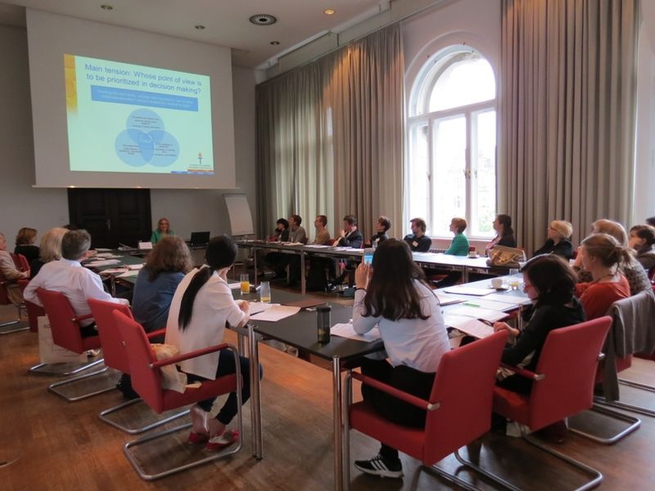Changing Times: Impacts of time on Family Life
Ms Christine Galea, Secretary of Cana Council, gives us her experiences when recently attending the 62nd International Conference of the ICCFR at the WZB Headquarters in Berlin.
“There were three keynote presentations which were relevant, well-planned, and extremely professional, with very clear links between sessions. From these presentations, I gained insights into the care for children with parents who have non-regular work hours, mental health of these children and the well-being of the family itself. In addition, studies related to fathers’ work hours, commuting behaviours in relation to work and FIFO (Flying-In-Flying-Out) workers helped build my understanding of challenges faced by families in various countries. The variety of presentations allowed me to step back to view this aspect of my pastoral work with a broader perspective, and connect with other professionals across the globe.
There were three group discussions, one following every keynote speech, which, as a Board Member of the ICCFR, I chaired. These sessions provided a space for further clarifications and understanding nuances that may have been missed in a larger forum. The interactions were meaningful and created an atmosphere of warmth, camaraderie and care.
There were also a variety of interactive workshops to choose from. I chaired the one presented by Clare Barnes from the USA, entitled The Benefits of Time – The Importance of the Post-War Boomers to Families.
Outline of workshop: Ten thousand Boomers are retiring daily in the United States and entering life’s second act. This social phenomenon is creating a huge demographic gap never before experienced. Rather than seeing this change as a burden on society, the challenge is to maximize the skills, experience, longevity and wisdom of the Boomer generation as they become a critical element in the well-being of families and communities.
The workshop content featured a community model for retirees helping them maintain a sense of well-being and emotional health as they navigate the largest social change in a century.
The workshop session focused on:
I. The statistics – in the US and Europe
II. The challenges created for communities and families by this demographic shift
III. Model remedies designed to encourage the well-being of individuals age fifty and older leading to the subsequent benefit to families. Focus will be on the Osher Lifelong Learning Institute (OLLI) Model – over 100 partnerships with American Universities supported by the Bernard Osher Foundation (San Francisco).
Finally I also participated in the social programme which gave me an opportunity to establish informally, contacts with like-minded people who work in the same fields as I do.”
The next conference will take place in Trento, Italy in May 2016.
comments powered byDisqus


